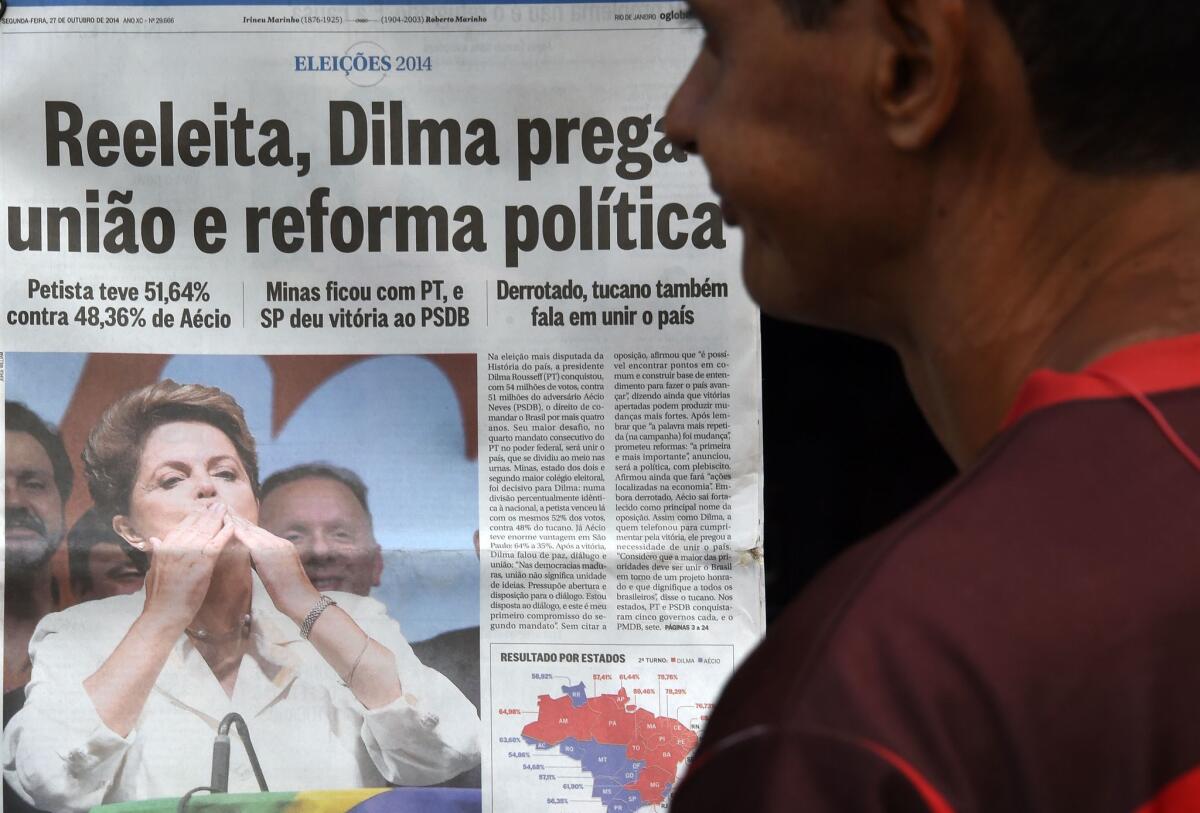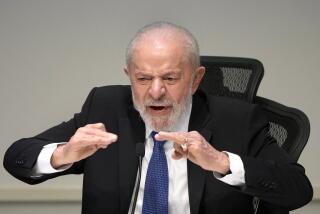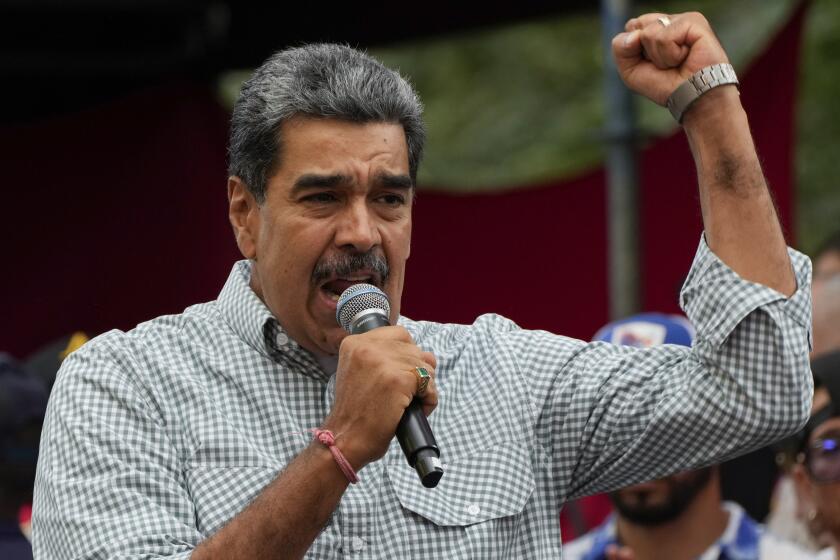Investors punish Brazil after President Rousseff’s reelection

Investors badly punished Brazil’s stock market and currency Monday after President Dilma Rousseff’s reelection, amid questions about how she will lead the world’s seventh-largest economy.
Business elites had strongly favored center-right challenger Aecio Neves, after the boom that center-left former President Luiz Inacio Lula da Silva oversaw turned into a technical recession in 2014 under Rousseff, his successor. Rousseff narrowly beat Neves in Sunday’s voting.
Brazil’s stock market index dropped 5% Monday morning before closing down 2.72%, and the real, Brazil’s currency, dropped to its lowest level against the U.S. dollar in years, closing at about 2.52 per dollar.
Much of the equity movements were attributed to problems at state-owned oil company Petrobras, Brazil’s largest company, currently roiled by an election scandal.
“The next few days should prove very volatile as markets adjust to the election result. The election is over, but there will be little time for the new government to celebrate,” Nomura Securities analyst Tony Volpon said in a note to investors Monday. “The most immediate task, in our opinion, is the nomination of a minister of finance.”
During the campaign, Rousseff appeared to admit that her administration needed to take a new approach to the economy, indicating she would replace Finance Minister Guido Mantega during her second four-year term.
The Workers’ Party has been in power since Lula took office in 2003, and his program of expanding social programs and lifting tens of millions out of poverty was boosted by a global commodities boom powered by China, which ended in 2011, the year Rousseff took office.
“It is unlikely that the external factors are going to be better over the next four years,” wrote Volpon. “It seems that the years in which all Brazilians could improve their lot in life are over, for now.”
Bevins is a special correspondent.
More to Read
Sign up for Essential California
The most important California stories and recommendations in your inbox every morning.
You may occasionally receive promotional content from the Los Angeles Times.










